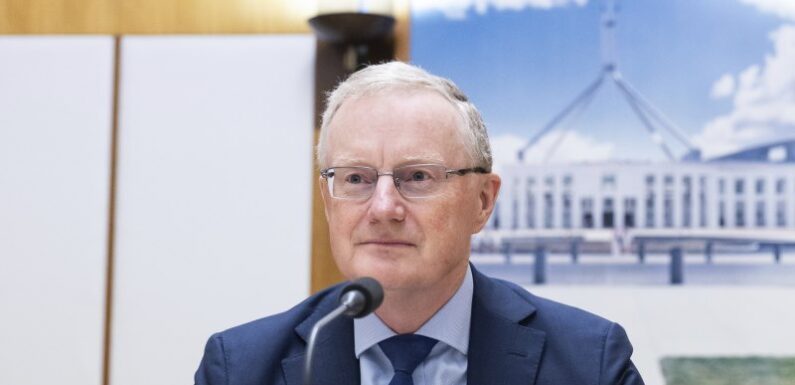
Save articles for later
Add articles to your saved list and come back to them any time.
Almost seven years ago, Philip Lowe used his first appearance as Reserve Bank governor before federal parliament’s economics committee to express his concern about high house prices.
As a parent, he worried that house prices were too high and beyond the reach of future generations. The problem, Lowe noted, was the cost of land sitting beneath all those homes.
Outgoing RBA governor Philip Lowe says land in Australia is the most expensive in the world.Credit: Alex Ellinghausen
“The value of our land relative to our income is incredibly high. Why is that?” he asked.
On Friday, fronting the same House of Representatives committee for the last time, the cost of land was again on the governor’s mind. If anything, the situation had deteriorated.
“Housing is expensive not because the cost of building a house or an apartment is expensive, it’s the land,” he said.
“The land embedded in each dwelling is very expensive, perhaps the most expensive in the world.”
How expensive is this land? The Housing Industry Association estimates the median price for a square metre of dirt in a new residential block in Sydney is about $1827. A decade ago, it was $601.
For all the complaints about Lowe and the Reserve Bank under his tenure – and there have been a lot – no one could rightly single out the governor for blame over Australia’s high-priced land and housing.
Lowe did point the finger at those who have contributed to the situation where a nation with a whole continent to itself has land so expensive that it is a growing drag on the economy and society.
Local and state governments, Lowe argued, needed to deregulate planning and zoning laws or land would just get more expensive. The cost of that land would be borne by future generations already facing major issues that mean Australia won’t be able to rely on what it can dig out of the ground or grow on it.
Bad policies wouldn’t help.
Lowe likened calls for rent freezes (being championed by the Greens) to policies (which both the Coalition and Labor have backed) that give money to people to help them cope with ever-increasing property prices.
“They’re short-term fixes that both, in my judgment, make the situation worse,” he said.
His comments on property prices and policies were the most important truth bombs exploded by the governor during his swansong appearance.
Lowe’s term as governor has been unlike anything experienced by his predecessors, bar Sir Ernest Riddle, who was in charge during the Great Depression (and who probably made Australia’s experience during that period worse than it should have been).
The low inflation/low wage growth period pre-COVID, the pandemic itself with the RBA engaging in quantitative easing, and then the post-pandemic inflation surge would individually challenge any central banker. Lowe and his team copped them all.
But he showed he continues to think about the bank’s broader role in the community.
Monetary policy, he said, was a blunt instrument – one that affected people differently (mortgage-free retirees with money in the bank are doing much better than young people seeking a rental property) and which could be unfair.
Central banks have the job of setting interest rates because politicians can’t be trusted to make tough and unpopular decisions.
According to Lowe, there has to be a better way to manage the economy, one that includes the political class. But don’t expect him to vent about his views once he leaves the governorship.
Pressed by Labor’s Jerome Laxale whether he would follow the lead of former prime ministers Tony Abbott or Julia Gillard, he said neither.
“I don’t plan to be a public commentator.”
Cut through the noise of federal politics with news, views and expert analysis. Subscribers can sign up to our weekly Inside Politics newsletter here.
Most Viewed in Politics
From our partners
Source: Read Full Article
